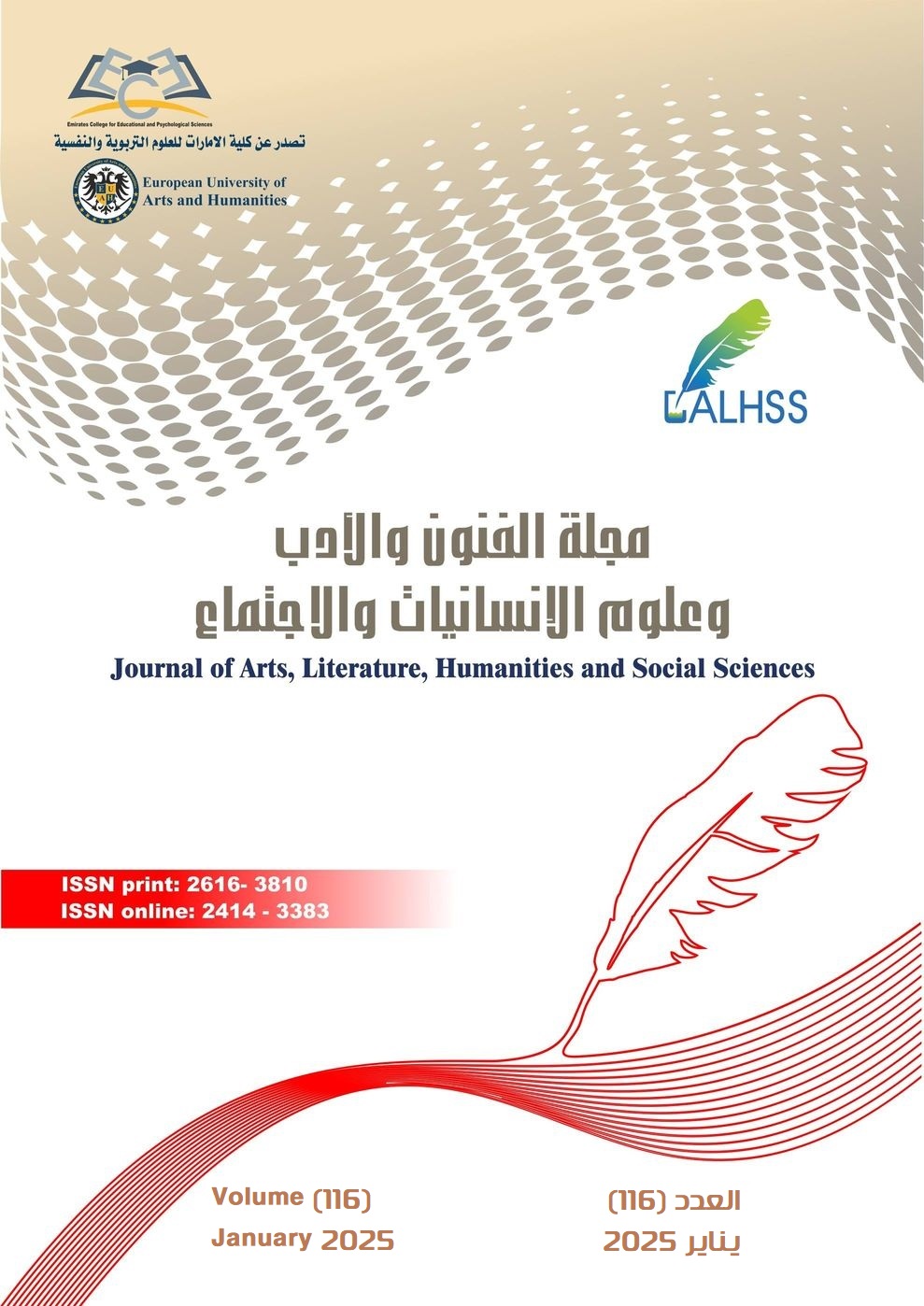Enhancing English Language Teaching and Learning
(An Examination of Research on Motivation and ELT Strategies for Arab EFL University Instructors)
Abstract
This study aims to examine the motivational factors and instructional strategies of Arab EFL university instructors. Comprehending the professional motivations of instructors and their pedagogical approaches can yield significant insights to effectively support their practices and improve student learning outcomes. A questionnaire was administered to 51 instructors to assess professional motivation and strategy use. Regarding motivation, results showed facilitating student learning and developing skills were primary drivers, enjoying intellectual challenges provided moderate motivation, while fulfillment from results least motivated instructors. For strategies, pair/group work and discussions emerged as most frequently employed, while grammar/vocabulary activities received neutral responses. The findings aligned closely with prior literature emphasizing intrinsic motivation over extrinsic, and highlighting impactful techniques like writing groups. Implications include providing training focusing on intrinsic rewards, developing programs for collaborative practices shown effective, and establishing an online community for continuous skills development and motivation. This study provides insights into optimally supporting Arab EFL instructors through initiatives prioritizing intrinsic motivators and interactive strategies demonstrated to engage learners.
References
2. Abdullah, M., Ghafri, H., & Yahyai, K. (2019). A Qualitative Study on the Best Motivational Teaching Strategies in the Context of Oman: Perspectives of EFL Teachers. English Language Teaching. https://doi.org/10.5539/ELT.V12N3P57
3. Ahmed, A. (2023). Using Efficient Planning for Achieving Course Learning Outcomes in EFL Classes at Taif University. European Scientific Journal, ESJ. https://doi.org/10.19044/esj.2023.v19n29p21
4. Alone, S. (2023). The Role of Audio Books and Video Books in English Language Teaching (ELT. SMART MOVES JOURNAL IJELLH. https://doi.org/10.24113/ijellh.v11i9.11462
5. Al-Qahtani, F., & Alwaheebi, E. (2023). Using Motivational Strategies to Develop University EFL Students’ Reading Skills. Journal of Language Teaching and Research. https://doi.org/10.17507/jltr.1401.09
6. Alshehri, E. (2017). Motivational strategies: the perceptions of EFL teachers and students in the Saudi higher education context. International Journal of English Language Education, 5, 46-82. https://doi.org/10.5296/IJELE.V5I2.11727
7. Altamimi, D., & Rashid, R. (2019). Effective Teaching Strategies to Eliminate Spelling Problems Among Saudi English Language Undergraduates. International Journal of English Linguistics. https://doi.org/10.5539/ijel.v9n5p317
8. Dörnyei, Z., & Ushioda, E. (2021). Teaching and researching motivation (3rd ed.). Routledge/Taylor & Francis Group. https://doi.org/10.4324/9781351006743
9. Elmahdi, O. E. H., AbdAlgane, M., & Othman, K. A. J. (2024). Promoting Inclusion and Motivation in EFL Learning: Strategies for Success. Teaching English Language, 18(1), 127-158. https://doi.org/10.22132/tel.2024.429625.1542
10. Februansyah, R., Ahsanu, M., & Yundayani, A. (2023). Motivational Strategies in EFL Classes in Indonesia. Journey: Journal of English Language and Pedagogy. https://doi.org/10.33503/journey.v6i3.3743
11. Gao, J., Pham, Q. H. P., & Polio, C. (2022). The role of theory in quantitative and qualitative second language learning research: A corpus-based analysis. Research Methods in Applied Linguistics, 1(2), 100006. https://doi.org/10.1016/j.rmal.2022.100006
12. Hafsa, F., & Borasi, R. (2019). Online teacher identity. Center for Learning in the Digital Age. https://www.rochester.edu/warner/lida/curated/online-teacher-identity/
13. Kim, S. (2019). The effects of task-based language teaching on intrinsic and extrinsic motivation in EFL learners. System, 85, 1-12.
14. Lin, S. Y. (2020). A study of the relationship between EFL students' intrinsic/extrinsic motivation and vocabulary learning strategies. English Language Teaching, 13(10), 1-14.
15. Ma, Q., & Wang, B. (2021). The effect of flipped classroom on EFL learners' motivation and achievement: A meta-analysis. Computer Assisted Language Learning, 34(1), 1-31.
16. Mali, Y. (2017). Motivational Teaching Strategies in Indonesian EFL Writing Classrooms. Celt: A Journal of Culture, English Language Teaching and Literature, 17, 60-85. https://doi.org/10.24167/CELT.V17I1.1139
17. Mekki, T. (2020). Utilizing reflective teaching strategies to develop EFL Iraqi university students writing ability. International Journal of Research in Social Sciences and Humanities. https://doi.org/10.37648/ijrssh.v10i02.020
18. Mutwarasibo, F. (2014). Promoting University Students' Engagement in Learning through Instructor-Initiated EFL Writing Groups. TESOL Journal, 5, 721-742. https://doi.org/10.1002/TESJ.127
19. Nafissi, Z., & Kashi, E. (2022). The effect of portfolio assessment on EFL learners' intrinsic and extrinsic motivation. Journal of Language Teaching and Research, 13(4), 837-848.
20. Raza, K. (2018). Adapting Teaching Strategies to Arab Student Needs in an EFL Classroom. Journal of Ethnic and Cultural Studies. https://doi.org/10.29333/EJECS/93
21. Riazi, A. (2007). Language Learning Strategy Use: Perceptions of Female Arab English Majors. Foreign Language Annals, 40, 433-440. https://doi.org/10.1111/J.1944-9720.2007.TB02868.X
22. Sneida, T., Yahya, M., & Husain, S. (2023). Effects of EFL vocabulary instruction on Arab learners’ usage of lexical collocations in speaking performance. Journal of Language and Communication. https://doi.org/10.47836/jlc.10.02.05
23. Wang, S., Gu, X., Luan, S., & Zhao, M. (2021). Resilience analysis of interdependent critical infrastructure systems considering deep learning and network theory. International Journal of Critical Infrastructure Protection, 35, 100459. https://doi.org/10.1016/j.ijcip.2021.100459
24. Wong, R. (2014). An investigation of strategies for student motivation in the Chinese EFL context. Innovation in Language Learning and Teaching, 8, 132 - 154. https://doi.org/10.1080/17501229.2013.777449
25. Zangana, I. (2023). The Effects of Using Task-Based Activities to Teach Reading Comprehension via Online Classes. Journal of Language and Linguistics in Society. https://doi.org/10.55529/jlls.36.29.37
26. Zhang, Y., & Zhang, Y. (2023). The relationship between EFL learners' motivation and willingness to communicate on social media. English Language Teaching, 16(3), 1-12.
Copyright (c) 2025 Mohammed AbdAlgane , Prof. Omer Elsheikh Hago Elmahdi

This work is licensed under a Creative Commons Attribution-ShareAlike 4.0 International License.



